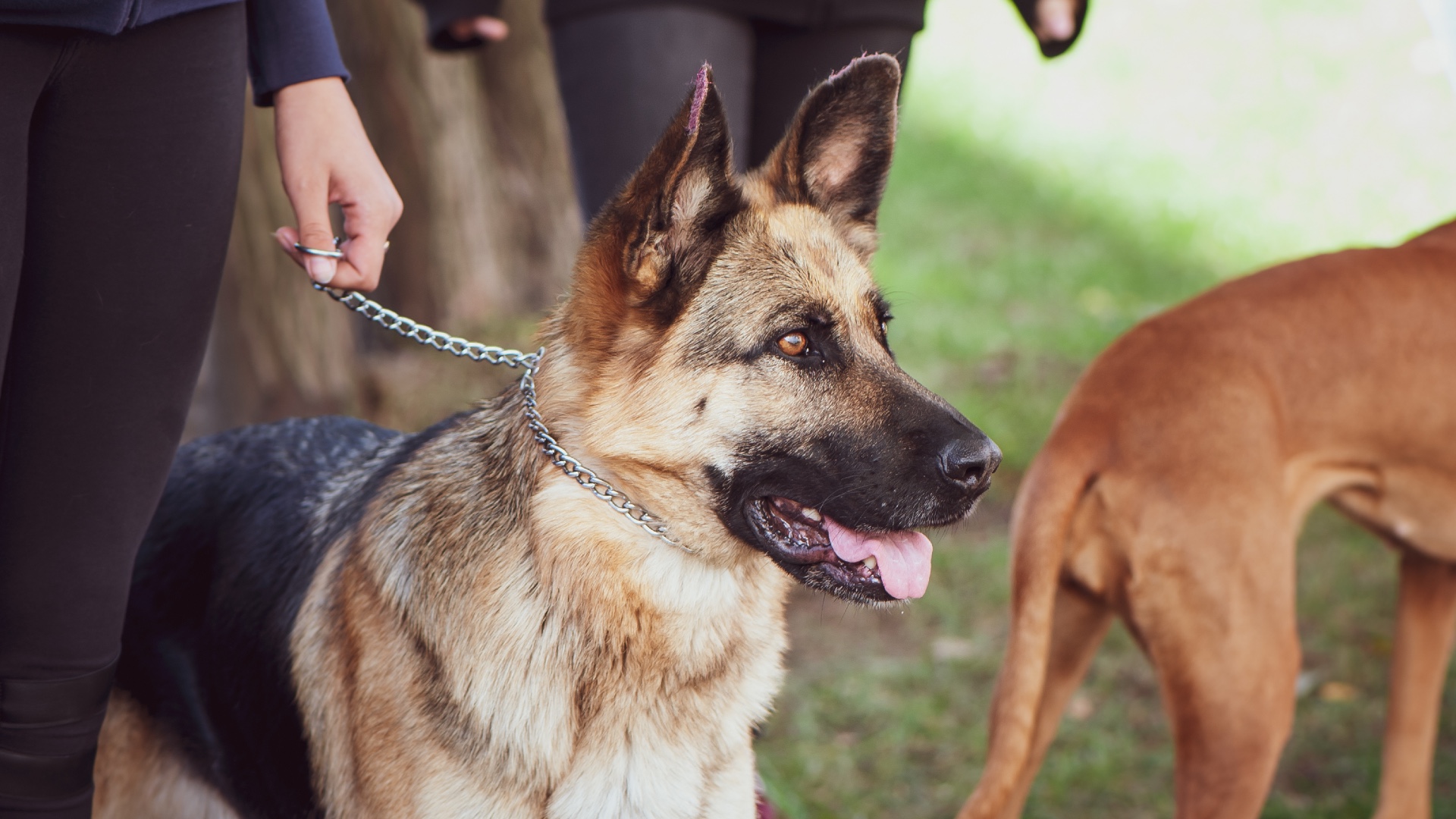Thinking of hiring a dog trainer? Expert reveals the most important question to ask
If you're on the lookout for a dog trainer, there's a surprising question you're going to want to ask them...

Get the best advice, tips and top tech for your beloved Pets
You are now subscribed
Your newsletter sign-up was successful
Are you thinking of hiring a dog trainer? Working with a professional can be a great way of accelerating your dog's progress when it comes to learning important skills and behaviors, but you'll want to do more than a quick scroll through the Internet to find the right person.
Learning how to spot dog training red flags is essential if you want to ensure you're working with a qualified professional who uses positive training methods.
But according to master dog trainer Amelia Steele, even once you've found someone you think ticks all the boxes, there's a crucial question you're going to want to ask them — and whether or not they pass the test with their answer will determine whether you hire them.
So, what's that all-important question? Read on to find out!
A post shared by Amelia Steele (@ameliathedogtrainer)
A photo posted by on
"It's really important that as dog trainer's we have the client's best interest in mind," explains Steele.
"Sometimes that might mean that we have to ask for help or get a second opinion or maybe even refer on.
"So a really good question you can ask your dog trainer to make sure they are right for you is: what will you do if your methods don't work?"
Get the best advice, tips and top tech for your beloved Pets
Steele says that what you're looking for here is not a trainer that says they'll escalate their methods in terms of harshness if gentler methods don't work, instead you're looking for openness and honesty around trying out different techniques and then potentially even referring on.
"Normally, I will have escalation points," Steele explains. "So if I know training should be working but it isn't, this signals to me that there's something else underlying.
"It's also perfectly okay to ask for help if we're not sure whether a method is going to work or we want to make sure it's the right thing to do."
Asking your dog trainer what they'll do if things don't go according to plan is a great way of ensuring they have you (and your dog's) best interests at heart.
And remember, not all behavioral issues are solvable with training. As Steele points out, some are caused by medical or neurological issues that require a vet's advice and guidance.

Kathryn is a freelance writer who has been a member of the PetsRadar family since it launched in 2020. Highly experienced in her field, she's driven by a desire to provide pet parents with accurate, timely, and informative content that enables them to provide their fur friends with everything they need to thrive.
Kathryn works closely with vets and trainers to ensure all articles offer the most up-to-date information across a range of pet-related fields, from insights into health and behavior issues to tips on products and training.
When she’s not busy crafting the perfect sentence for her features, buying guides and news pieces, she can be found hanging out with her family (which includes one super sassy cat and a kitten), drinking copious amounts of Jasmine tea and reading all the books.
She has written for a range of publications, including Fit&Well, Top Ten Reviews, LiveScience, Goodto, and Product Hunt.
